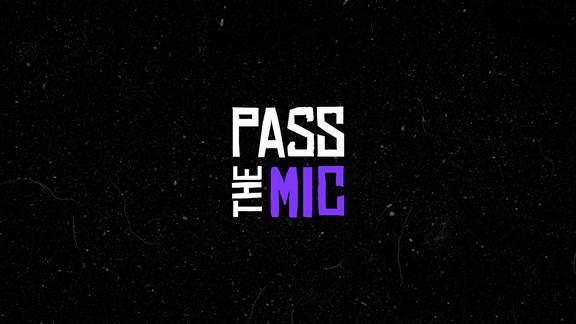We #PasstheMic to those with enriching perspectives to share their views and goals. Today, Enlara Engwan, Functional Delivery Consultant in the US shares her lived experiences and learnings with us.

Breaking the Stereotype, who am I?
Who am I?
At 6 years of age, I migrated to America from Cameroon. My family and I moved to the US after my father won the DV lottery (Diversity Lottery). Integrating into the American system was difficult. I had to learn different cultural norms in order to fit in and feel a part of the society. I forced myself to perfect an American accent in an effort to be better understood by the people I was now surrounded with on a daily basis. I stopped eating different native foods accommodating my palate to more American food. I moulded myself into a completely different identity that was as foreign to me as I was to the people around me in order to assimilate. What made me feel safe in the integration process was my neighbourhood. I grew up in Uptown Chicago known for its vast diversity of immigrants especially from the continent of Africa. In my neighbourhood I felt a sense of home, I felt safe, and I felt comfortable.
Who am I?
At 10 years of age, I finally began to feel part of the American system. My English is transforming so I sound like an American, I am getting accustomed to cheeseburger and mac and cheese, this created identity began to be accepted. I attended a school in my neighbourhood where the environment allowed me to work more on assimilating into the American way of life, and still maintain my African culture. My classmates and I connected on being children of African immigrants, finding similarities in the native food we eat and our music/dance that sets us apart from other continents.
Who am I?
At 15 years of age, I was surrounded by a sea of white faces in the suburbs of Chicago which left me feeling insecure of my blackness, something that I previously never questioned. This was the first time in my life that I questioned my Black skin and my Black existence. During this time I experienced actions from peers and teachers that made me question “Why are you treating me this way? Did I do something wrong?!” My experiences ranged from being placed incorrectly in a science class that I tested out of to experiencing "lunch room segregation", and because I had no idea where I truly fit, all of these experiences heavily impacted me and back then I did not have the vocabulary to express myself. So that, coupled with the lack of knowledge I had concerning systemic racism, discrimination, and not knowing the full, real story of American Black history, I did not realize that the actions and experiences I had were in fact microaggressions. It wasn't until senior year of high school I got the chance to take a justice seminar class and that’s when I started waking up, waking up to the social injustice and inequality of Black people in America. With this awakening, a bridge was built connecting my African identity to my African-American identity and they began to intertwine.
Who am I?
At 18 years of age, as I strolled through the campus at Xavier University I walked high with pride and confidence in my identity and my Blackness. I was ready to bring awareness and knowledge to the world and started that journey by getting involved with the Black Student Association. In my freshman year I coordinated and facilitated a conversation among my peers on building bridges between the African and African-American existence. I was hoping we could find commonalities between us, but instead I found not only my blackness being challenged, but these same peers questioned ME because of my African lineage and even said I could not relate to the African-American experience. Then, in an attempt to create a stronger tie to my African lineage I joined the African Student Association. Unfortunately, I once again found my identity challenged, this time by my African peers. Since I was raised in America they felt as if I could not relate to the African experience. But I did not allow this to stop my journey! As a result of all the challenges I endured, I decided to dedicate my time to expanding my knowledge and understanding. One of the things I did was getting a minor in Gender and Diversity studies, which led me to go to Ferguson, Missouri after the shooting of Mike Brown. All of these experiences enabled me to learn more about racial injustice, police brutality, and economic disparity in the Black community as well as my intersecting personalities and navigating the different spaces that I have been in.
Who am I?
Adulthood, learning about my blackness and also how to maintain the bridges that I built over the years is an on-going endeavor. Due to my experiences and my period of becoming I can say that my blackness is multifaceted. My Blackness is powerful, beautiful, complicated, and can not be narrowed down to one definition.
So when you ask me “Who am I?'' there is no simple answer to that, I can simply say I am me.